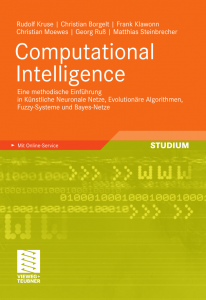Yesterday I was informed that I’ve been given the best graduate student paper award at the International Conference on Precision Agriculture 2010, which is something like the flagship conference in precision agriculture, much like the IEEE ICDM (held in Sydney, Australia, this year) or the PKDD (held in Barcelona, Spain, this year) are for data mining and knowledge discovery in databases. I had to be nominated for this award and parts of the nomination included my vision on the area of precision agriculture. This is quoted below:
On first sight, it might seem strange that a computer scientist who’s pursuing
a PhD in computer science is working in the area of agriculture. At least, this
is what a lot of my colleagues think when they hear what I’m working on. Then,
when giving a talk at a conference or a meeting, they’re first astonished by
the sheer advances in agriculture. After that, they’re surprised about the data
acquisition and collection which take place in precision agriculture. And once
they’ve come to grasp the data and its implications, they’re usually hooked and
really interested in what can be done with these data. This experience is
reproducible everytime at computer science conferences. I’ve recently and
successfully worked on yield prediction, identifying useful sensors and
management zones — identifying some flaws in existing data processing and
fixing those has been rather straightforward from a computer science
perspective. I’m not surprised by the above reactions any more, yet I’ve come
to some conclusions about the future of precision agriculture in conjunction
with computer science — these are given in the following.Since precision agriculture is becoming a more and more data-driven area, this
clearly creates the need for someone familiar with analysing the large amounts
of harvested data. This specialist is usually called a data miner: he
tries to find the gold nuggets of information hidden in huge databases.From my point of view it is clear that the field of precision agriculture
requires those specialists, since data are at the core of precision
agriculture. A classical data miner is, on the one hand, rather generalistic:
he knows and applies techniques and methods of prediction, modeling and
classification, for example. On the other hand, he usually specialises to a
specific area where data mining shall be applied — such as precision
agriculture. He can draw conclusions from the available data and tap the hidden
information reservoir, suggesting possible solutions to specific agricultural
problems or acting according to information-theoretic criteria to extract facts
of interest.I therefore see data miners, computer scientists and geostatisticians at the
core of the precision agriculture field. Nevertheless, since they are usually
not agriculture specialists, they are to be embedded: first, at the
interface from agriculture to data and, second, on the other end of the process
where their solutions are required to be interpreted by domain experts. This
process is natural, and it has happened before in such diverse fields as
environmental modelling, business intelligence and industry automation, among others.
Wherever data are collected, data mining specialists come into play sooner or
later to tackle business questions from the data side.From what I see at Agri Con GmbH, Germany, it is
obvious that the upscale of precision agriculture in most of Europe will be
driven by enormous incentives both for the environment and the farming
companies. However, precision agriculture companies are still partly
research-based as the area of PA is rather novel and often somewhat uncharted,
at least when data mining comes into play.Therefore, I see my role as a computer scientist with a strong interest in
precision agriculture along the above lines. I’ve taken a strong liking to
being positioned at the interface between agriculture and computer science. I
also like the idea of creating novel results and computational outcomes based
on real data, being applied to the real world. Combining the abovementioned
needs, I’ve decided to hold a first workshop on data mining in
agriculture} in July 2010: http://dma2010.de.
The workshop is actually closed for submissions now, we’ve had five submissions, of which four were accepted for publication and presentation on July 14th, 2010, in Berlin, Germany. Not bad for a first-type event.
I’ll try to acquire some photos at the ICPA awards ceremony on July 20th, in Denver, Colorado.
Hmmm, as a side note, I’ve gotten used to being in Australia at least once a year and my work is certainly relevant for the IEEE ICDM. Well, we’ll see…
